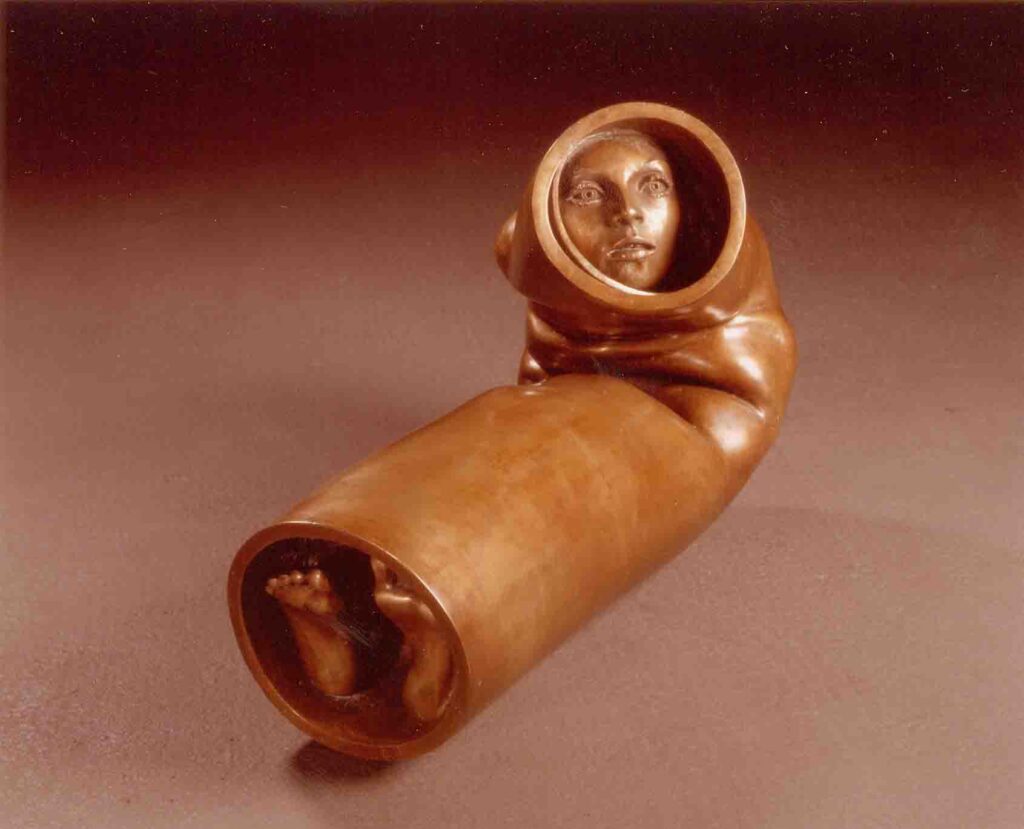The 14th
LaureateSculpture
Giuliano Vangi
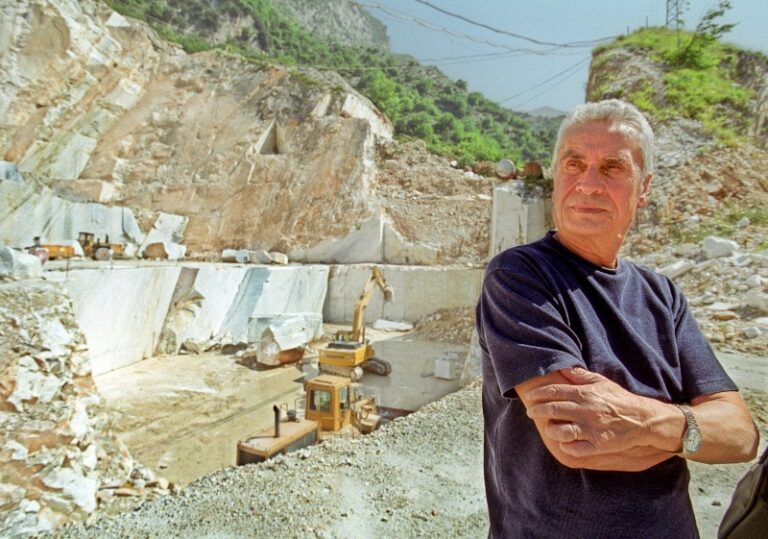
Giuliano Vangi was born near Florence in 1931. He began his career concentrating on abstract studies and working with crystal and metals such as iron and steel, but moved to figurative expression when he returned to Italy in 1962 after four years in Brazil. His subject is always the human figure, and aside from stone, wood, and metal, he is just as likely to use glass and pottery, gems and gold or any other natural material. He is currently collaborating with architect Renzo Piano, Praemium Imperiale laureate 1995, on a new work for the Church of St. Padre Pio. Robert Rauschenberg, Praemium Imperiale laureate 1998 and Arnaldo Pomodoro, Praemium Imperiale laureate 1990, are also taking part in this project.
Biography
Giuliano Vangi was born near Florence in 1931. He studied at the Art Institute of Florence and from 1959 to 1962 lived in Brazil. He currently lives and works in Pesaro and has been teaching sculpture at the Art Institute of Pesaro since the 1950’s.
Vangi began his career concentrating on abstract studies and working with crystal and metals such as iron and steel, but moved to figurative expression when he returned to Italy after four years in Brazil. In the atmosphere of the social and political movements of the 1960’s, he portrayed, for example, the facial expression of a man who had lost his tongue, a man enclosed in a clear box with no way out, a woman trapped inside a tube, a man desperately climbing up a tall cliff. He exhibited at the Palazzo Strozzi in Florence in 1967, and had exhibitions in Stuttgart, Munich, Frankfurt, Hamburg, London, New York, and Tokyo. Vangi’s 1991 exhibit at Saint Elmo’s castle in Naples gained him particular critical acclaim. This was followed by his retrospective exhibition on the hill of Fort Belvedere in Florence in 1995, exhibitions at the Uffizi in 2000, in Saint Petersburg at the Hermitage Museum in 2001, at the Hakone Open Air Museum in 2001. The Vangi Sculpture Garden Museum that opened in 2002 near Mishima City, Japan permanently exhibits hundreds of his works, both drawings and sculptures, with larger pieces displayed outdoors in a large garden park.
Vangi’s subject is always the human figure, and he uses a wide variety of materials. He does not limit himself to the obvious partnerships of marble with stone, wood with metal, and is just as likely to bring in glass and pottery, gems and gold – or any other natural material. He combines the materials with inlay and other techniques. Recent works include the first work of a modern sculptor on display in Florence - a two meter tall bronze statue of St. John the Baptist, and a six meter tall work in marble(La Lupa) in Siena, both in 1996, the alter of the Diocesi du Padua(1997), a 5 meter stone sculpture for the Italian National Bank new headquarters in Fiumicino, near Rome, a stone carving in celebration of the millennium for the Vatican Museum main entrance hall, and a new pulpit and altar for the cathedral in Pisa(2001). He is currently collaborating with architect, Renzo Piano(Praemium Imperiale laureate 1995) on a new work for the Church of St. Padre Pio. Robert Rauschenberg(Praemium Imperiale laureate 1998) and Arnaldo Pomodoro(Praemium Imperiale laureate 1990) are also taking part in this project.
Chronology
Studied at the Porta Romana Institute of Arts in Florence.
Afterward, taught at art institutes in Pesaro and Cantu
Hakone, Tokyo, Osaka, and Mexico City
"Guliano Vangi Exhibition", Hakone Open-Air Museum, Japan
Awarded the Praemium Imperiale Prize for Sculpture, Japan Art Association, Tokyo
-
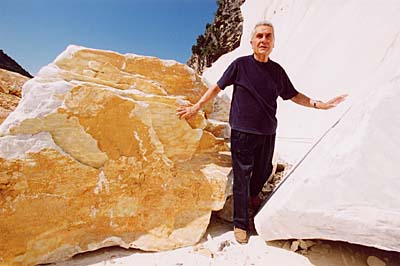
Mining site of marble material
-
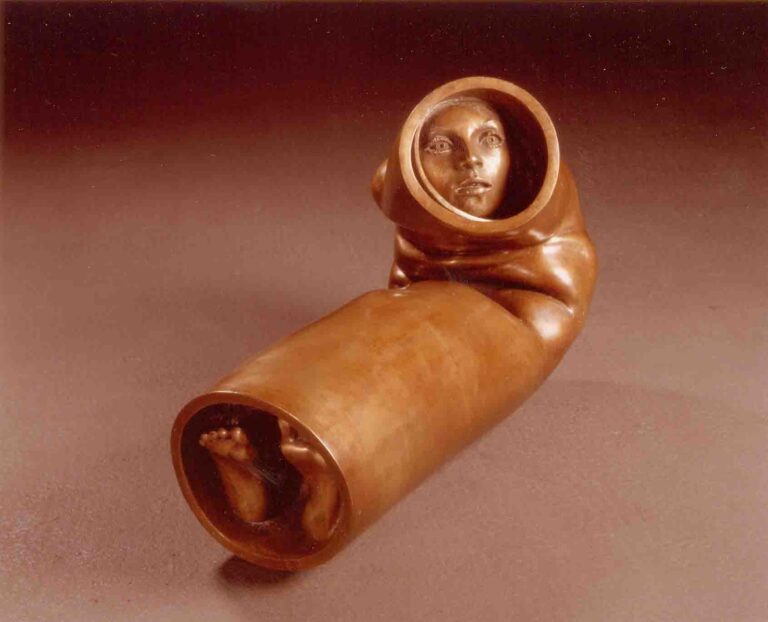
Donna nel Tubo,1967-68
-
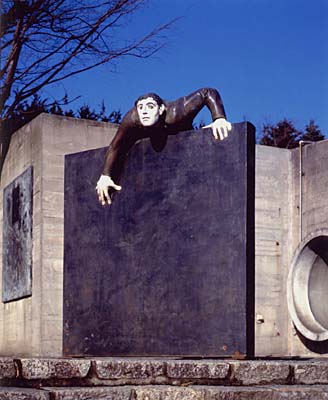
Uomo che Salta il Muro, 1970
-
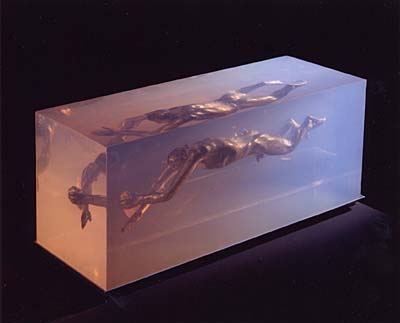
Uomo che Nuota sott' Acqua. 1984
-
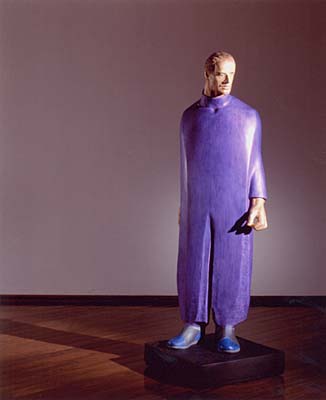
Uomo Vestito di Viola, 1989
-
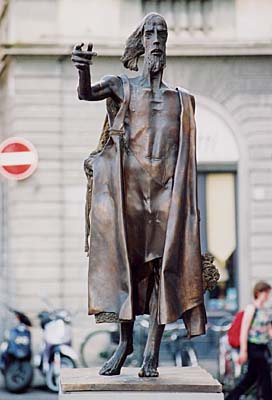
San Giovanni Battista, Florence, 1996
-
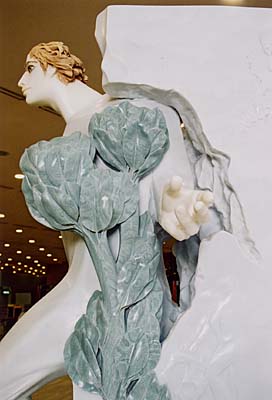
Crossing the Threshold, Musei Vaticani, 1999

